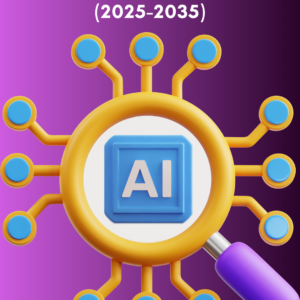1. Executive Summary
-
- Key trends in semiconductor memory
- Critical factors shaping the industry
- Overview of major technological shifts
2. Overview of Semiconductor Memory Types
a. Dynamic Random Access Memory (DRAM)
-
- Principles of operation
- Key characteristics and applications
- Current state of technology
b. NAND Flash Memory
-
- Fundamentals of NAND technology
- Types: SLC, MLC, TLC, QLC
- Applications and market segments
c. High Bandwidth Memory (HBM)
-
- Architecture and design principles
- Performance characteristics
- Use cases in high-performance computing
d. Other Memory Types
-
- Static RAM (SRAM)
- Magnetoresistive RAM (MRAM)
- Phase Change Memory (PCM)
- Resistive RAM (ReRAM)
3. Comparative Analysis of Memory Technologies
-
- Performance metrics (speed, latency, bandwidth)
- Density and capacity scaling
- Power consumption and efficiency
- Cost per bit and manufacturing complexity
- Reliability and endurance characteristics
4. Current Market Dynamics
-
- Global demand trends
- Supply chain considerations
- Pricing trends and cyclicality
- Key application drivers (data centers, mobile devices, automotive)
5. Technological Advancements and Innovations
a. DRAM Innovations
-
- DDR5 and beyond
- Advancements in process technology
- 3D stacking and packaging innovations
b. NAND Flash Developments
-
- 3D NAND scaling and layer count increases
- Improvements in reliability and endurance
- Emerging cell architectures
c. HBM Advancements
-
- Next-generation HBM (HBM3, future versions)
- Integration with AI and HPC processors
- Bandwidth and capacity scaling
d. Emerging Memory Technologies
-
- Progress in MRAM, PCM, and ReRAM
- Potential for displacing current technologies
- Hybrid memory systems
6. Industry Challenges and Opportunities
-
- Scaling limitations and potential solutions
- Energy efficiency and heat management
- Meeting growing data storage and processing demands
- Opportunities in emerging applications (AI, IoT, edge computing)
7. Future Outlook (2025-2035)
a. Technology Roadmaps
-
- Projected advancements in each memory type
- Potential disruptive technologies
- Convergence of memory and processing (in-memory computing)
b. Market Projections
-
- Demand forecasts by memory type and application
- Shifts in market share among different technologies
- Emerging applications and their impact
c. Industry Trends
-
- Consolidation and partnership dynamics
- Geographical shifts in manufacturing
- Impact of geopolitical factors on the industry
8. Implications for the Life Sciences Industry
-
- Memory requirements in genomics and bioinformatics
- Role of advanced memory in medical imaging and diagnostics
- Data storage and processing needs in drug discovery
9. Considerations for Memory Technology Selection
-
- Matching memory types to specific applications
- Balancing performance, cost, and power efficiency
- Future-proofing technology investments
10. Case Studies (Generalized)
-
- Successful implementations of advanced memory solutions
- Challenges overcome in adopting new memory technologies
- Innovative uses of memory in cutting-edge applications
11. Environmental and Sustainability Aspects
-
- Energy efficiency improvements in memory technologies
- Recycling and end-of-life considerations
- Efforts towards reducing environmental impact in manufacturing
12. Regulatory and Standards Landscape
-
- Industry standards and their evolution (JEDEC, etc.)
- Compliance requirements for different markets
- Data security and privacy implications
13. Conclusion
-
- Key takeaways on the future of semiconductor memory
- Critical factors for stakeholders to consider
- Potential game-changers in the memory technology landscape
14. Appendices
-
- Glossary of semiconductor memory terms
- Comparative table of memory technologies
- Timeline of major memory technology milestones




